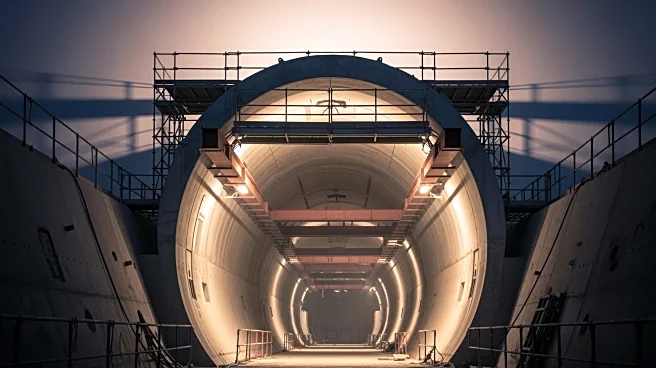What's Happening?
Congressional leaders have decided not to hold votes to extend President Trump's temporary control of the D.C. police, which is set to expire next week. This decision follows D.C. Mayor Muriel E. Bowser's order for indefinite coordination between local and federal law enforcement, expressing confidence in the city's ability to manage public safety independently. The Trump administration's control was initially established due to a declared crime emergency in D.C., which involved deploying the National Guard and attempting to replace the local police chief. Despite the federal intervention, crime rates have reportedly decreased, with fewer homicides, robberies, and carjackings compared to the previous year.
Why It's Important?
The decision not to extend federal control marks a significant moment in the ongoing power struggle between local and federal authorities over public safety in Washington, D.C. It represents a victory for local governance and Mayor Bowser's approach, which has been both praised and criticized. The move also highlights the tension between the Trump administration and D.C. officials, particularly regarding issues like immigration enforcement. The outcome may influence future federal interventions in local matters and impact D.C.'s autonomy in governance.
What's Next?
As the federal control ends, D.C. officials will continue to manage public safety independently, potentially facing further attempts by Congress to exert control over local matters. The expiration of federal control may lead to legislative efforts aimed at criminal justice reform and home rule in D.C. Additionally, Mayor Bowser's appeal to Congress for support in maintaining local governance could shape future political dynamics in the capital.
Beyond the Headlines
The situation underscores broader issues of federal versus local authority, particularly in the context of D.C.'s limited self-governance. It raises questions about the balance of power and the role of federal intervention in local affairs, which could have implications for other cities facing similar challenges.









